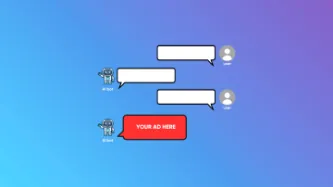Search
Content type: Long Read
IntroductionIn early October this year, Google announced its AI Overviews would now have ads. AI companies have been exploring ways to monetise their AI tools to compensate for their eye watering costs, and advertising seems to be a part of many of these plans. Microsoft have even rolled out an entire Advertising API for its AI chat tools.As AI becomes a focal point of consumer tech, the next host of the AdTech expansion regime could well be the most popular of these AI tools: AI chatbots.…
Content type: Long Read
IntroductionData about our health reveals some of the most sensitive, intimate - and potentially embarrassing - information about who we are. Confidentiality is, and has always been, at the very heart of medical ethics. People need to be able to trust their doctors, nurses and other healthcare providers so that they are not afraid to tell them something important about their health for fear of shame, judgement or social exclusion.It’s no surprise then that data protection regimes around…
Content type: Press release
La CNIL a aujourd'hui prononcé une sévère sanction contre Criteo, une des plus grandes sociétés françaises de pistage et publicité en ligne. Le montant de l'amende a été réduit de 60 à 40 millions d'euros depuis l'audience qui s'est tenue à la CNIL en Mars 2023, durant laquelle Criteo avait mis en avant son bénéfice net de 10 millions d'euros en 2022 pour plaider en faveur d'une réduction de sa peine. La CNIL semble avoir entendu ces arguments, mais a heureusement maintenu une amende…
Content type: Press release
French data regulator CNIL announced today a strong sanction against Criteo, one of the world's largest AdTech companies. Although close to the maximum GDPR fine, the amount of the fine was reduced from 60 to 40 million following a hearing at CNIL's offices in March 2023, during which Criteo pleaded for a reduced fine in light of its 10 million euros profit in 2022. CNIL seems to have acknowledged this argument but maintained a significant fine. This sanction follows a Privacy International…
Content type: Advocacy
In our submission we outline our concerns with the industry as a result of extensive technical research and complaints taken to data protection authorities in Europe as a result.
Data brokers must specifically be included in "actors in scope."
We recommend that "data brokers" are specifically included in the list of "actors in scope". A data broker is a company that collects, buys and sells personal data and this is often how they earn their primary revenue. It is a term that is entering…
Content type: Report
Democratic engagement is increasingly mediated by digital technology, from campaigning to election results transmission. A key example of the application of new technologies to democratic processes is the growing practice of micro-targeting in political campaigning around the globe, including Colombia.
In 2018, the mayor of Bogotá, Enrique Peñalosa, was accused of hiring Cambridge Analytica during his 2015 election campaign. That same year, Cambridge Analytica’s former director acknowledged…
Content type: News & Analysis
Uganda's Presidential election in January 2021 resulted in the incumbent President Museveni winning his sixth term in office, having held power for 35 years. The election took place amidst a global pandemic and the run up to election day was fraught. Violence left dozens dead and hundreds more arrested, including the opposition candidate Bobi Wine. Mass rallies and in person campaign meetings were banned due to Covid restrictions and political parties in Uganda were encouraged to conduct “…
Content type: Case Study
Your phone is the ideal profit tool for data brokers and advertisers: it's always in your pocket and can be used both as a means of collecting information and serving you ads based on that information. But how does this data collection happen through your apps?
Most, if not all, apps on our phones use Software Development Kits (SDKs). SDKs themselves are not trackers, but they are the means through which most tracking through mobile apps occurs. These kits are provided by third parties and…
Content type: Case Study
Behind their tecchie names, AddThis and ShareThis are simple services: they allow web-developers and less tech-savvy users to integrate social networking "share" buttons on their site. While they might also offer some additional services such as analytics, these tools gained traction mostly by providing an easy and free way to integrate Facebook, Twitter and other social networks share buttons. Anyone can use any of these service and in a few clicks be provided with a plugin for their site or a…
Content type: Long Read
Now more than ever with a global pandemic happening, our lives are being shaped by our interaction with the digital world. Work meetings on Zoom followed by Skype with family before a quick run with your favourite running app and a Google search for your next meal: technologies and services offer us a lot and greatly improve our daily lives. But what's the real cost of these tools we rely on so much?
A lot of these companies, especially those offering free services, collect data about you. It…
Content type: Examples
Article extract:
"An app that the UK’s governing party launched last year — for Conservative Party activists to gamify, ‘socialize’ and co-ordinate their campaigning activity — has been quietly pulled from app stores..."
"...We know the name of the Conservative Campaigner app’s supplier because this summer we raised privacy concerns about the app — on account of its use of uCampaign’s boilerplate privacy policy, if you clicked to read the app’s privacy policy earlier this year.
The wording…
Content type: Examples
Article extract:
"A meaty first report by the UK parliamentary committee that’s been running an inquiry into online disinformation since fall 2017, including scrutinizing how people’s personal information was harvested from social media services like Facebook and used for voter profiling and the targeting of campaign ads — and whose chair, Damian Collins — is a member of the UK’s governing Conservative Party, contains one curious omission.
Among the many issues the report raises are privacy…
Content type: Examples
Article extract:
""People with center-right views feel like the big social platforms, Facebook and Twitter, are not sympathetic to their views,” said Thomas Peters, the chief executive of uCampaign, a start-up in Washington that developed the N.R.A., Great America and Trump campaign apps. “It’s creating a safe space for people who share a viewpoint, who feel like the open social networks are not fun places for them.”
Sheltered from the broader public, however, the platforms can intensify…
Content type: Examples
Article extract:
"Ireland's two largest anti-abortion campaigns are facing questions over privacy after a BuzzFeed News analysis found that personal user data gathered by both of their apps can be shared with an international network of conservative and religious groups that includes the US National Rifle Association.
The Save the 8th campaign and the LoveBoth Project are at the forefront of the campaign to prevent the repeal of the Eighth Amendment of Ireland's constitution – which makes…
Content type: Examples
Article extract:
"French laws designed to prohibit individual-level targeting are circumvented by services like those provided by Paris-based firm Liegey Muller Pons, which aggregates personal data. Such services are no less data-intensive than those unconstrained by such legal requirements."
"• Liegey Muller Pons (LMP) is a digital campaigning firm that has provided services to over 1,000 campaigns across six European countries. French law prohibits individual-level targeting except under…
Content type: Examples
Article extract:
"On Aug. 2, the Liberal party sent an email to Liberal campaigns across the country, promoting services offered by Data Sciences Inc., a company owned by Tom Pitfield, an old friend of Justin Trudeau and the 2019 campaign’s digital director.
The party urged local campaigns to hire the company to handle their Facebook ad buys, for $5,000, $8,000 or $12,000, a significant chunk of the budget of local campaigns, which are limited by the Elections Act to about $100,000.
“The…
Content type: Examples
Article extract- translated from the original French.
"A political big data company with close ties to the federal liberals and which worked on Emmanuel Macron's campaign in France is setting up its head office in Old Montreal to continue its growth and take advantage of Montreal's digital vitality.
Data Sciences inc. (DS) was born from the victory of the Liberal Party of Canada (PLC) in the last election. Tom Pitfield, a close friend of Justin Trudeau, was leading digital operations during…
Content type: Examples
Article extract:
"Anti-smoking campaigners have expressed alarm that "big tobacco" has been employing two of the world's most powerful lobbying companies in a bid to stymie the introduction of plain packaging for cigarettes.
Crosby Textor, which has been hired by the Conservative party to provide "strategic direction" at the next election, has played a powerful behind-the-scenes role in mobilising opposition to the Australian government's plans for plain packaging, which became law on…
Content type: Examples
Article extract:
"The lobbying firm founded by election guru Lynton Crosby is reported to have advised private healthcare providers on how to exploit failings in the NHS..."
"...Crosby Textor advised an umbrella group of private healthcare providers on how to exploit perceived “failings”, according to a leaked document obtained by the Guardian.
The newspaper published extracts from a slideshow presentation produced for the H5 Private Healthcare Alliance, which stated that people believe the…
Content type: Examples
Article extract:
"The lobbying firm run by Boris Johnson’s close ally Sir Lynton Crosby has secretly built a network of unbranded “news” pages on Facebook for dozens of clients ranging from the Saudi government to major polluters, a Guardian investigation has found.
In the most complete account yet of CTF Partners’ outlook and strategy, current and former employees of the campaign consultancy have painted a picture of a business that appears to have professionalised online disinformation,…
Content type: Examples
Article extract:
"A series of hugely influential Facebook advertising campaigns that appear to be separate grassroots movements for a no-deal Brexit are secretly overseen by employees of Sir Lynton Crosby’s lobbying company and a former adviser to Boris Johnson, documents seen by the Guardian reveal.
The mysterious groups, which have names such as Mainstream Network and Britain’s Future, appear to be run independently by members of the public and give no hint that they are connected. But in…
Content type: Examples
Article extract:
"At the end of an alley on a nondescript street, a political consulting firm with the unusual name of Aristotle International has compiled the nation's largest voter databank, the names of 150 million Americans registered to vote. And it is selling them to politicians like George W. Bush, Joseph I. Lieberman and John McCain in ways that many fear removes too much privacy from the voting booth..."
"...Of particular concern this election season, when electronic privacy has…
Content type: Examples
Article extract:
"One of the nation's largest commercial distributors of voter data sold voter-registration lists featuring detailed personal information without verifying the identity or intent of buyers.
Aristotle International used a website to sell the lists, which contain details about registered voters from nearly every state. The data includes birth dates, home addresses, phone numbers, race, income levels, ethnic backgrounds and, in some cases, religious affiliations.
Although voter-…
Content type: Examples
Article extract:
"Knowing your business is big business for Aristotle Inc., whose Orwellian database of voter records has been an essential campaign tool for every president since Ronald Reagan. As the 2008 race heats up, the company’s shadowy founder, John Aristotle Phillips, unveils his most powerful personal-space invader yet."
Link: https://www.vanityfair.com/news/2007/12/aristotle200712
Author: James Verini
Publication: Vanity Fair
Publication date: 12 December 2007
Content type: Long Read
Political parties depend on data to drive their campaigns, from deciding where to hold rallies, which campaign messages to focus on in which area, and how to target supporters, undecided voters and non-supporters, including with ads on social media. Political parties increasingly hire private companies to do the bulk of this work, and our primary concern is how these companies use personal data to “profile” people and drive election campaigning.
As part of PI’s programme of work on Defending…
Content type: Press release
Privacy International announces the launch of two reports as part of its work on Defending Democracy and Dissent.
The report Online Political Ads: A study of inequality in transparency standards builds on our 2019 research findings and delves into the adverse impacts of non-existent or limited transparency on democracy based on two case-studies developed by our partners InternetLab and ELSAM.
The report, Micro-Targeting in Political Campaigns,…
Content type: Report
This paper examines the various legal frameworks governing micro-targeting in political campaigns in six states: Canada, Brazil, France, Italy, Spain and the UK. It aims to assess national practices as well as point out gaps in their respective frameworks. The paper commences by examining how micro-targeting is defined and thereafter examines the legal provisions applicable to micro-targeting activities.
To do this in an accessible way, the paper follows and analyses the series of activities…
Content type: Frequently Asked Questions
On 27 October 2020, the UK Information Commissioner's Office (ICO) issued a report into three credit reference agencies (CRAs) - Experian, Equifax and TransUnion - which also operate as data brokers for direct marketing purposes.
After our initial reaction, below we answer some of the main questions regarding this report.
Content type: News & Analysis
Privacy International (PI) welcomes today's report from the UK Information Commissioner's Office (ICO) into three credit reference agencies (CRAs) which also operate as data brokers for direct marketing purposes. As a result, the ICO has ordered the credit reference agency Experian to make fundamental changes to how it handles people's personal data within its offline direct marketing services.
It is a long overdue enforcement action against Experian.…
Content type: News & Analysis
Back in June, we published our investigation into Facebook brands, highlighting how Facebook failed to provide its users with a fair and meaningful understanding of how targeted advertising operated on its platform, and a number of issues preventing users from exercising their rights to the fullest possible extent. In face of the serious gaps encountered, we published an open letter to Facebook drawing attention to four main issues as well as our recommended actions to tackle them. This letter…













